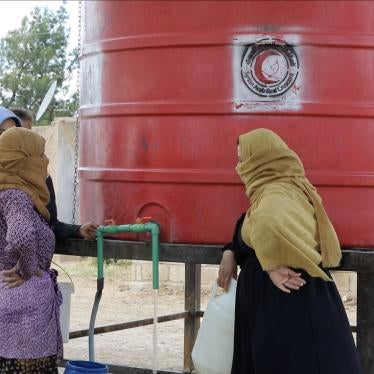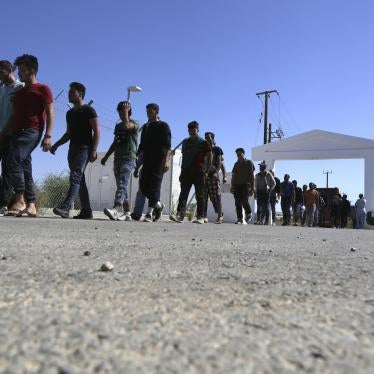Rakza Salih Fawaz, 50, and her 14-year-old daughter, Farah Adnan Ramdan, were among a group of 30 daily laborers toiling away in cotton field on October 9 near the village of Bcheïrîyé in northeast Syria.
“Around 10 in the morning, something struck my head,” said Rakza.
“I heard Farah screaming about losing her leg. I attempted to reach her, but I collapsed.”
They were rushed to a hospital in al-Hasakah by their fellow workers. She told Human Rights Watch that there were no fighters or military presence at the farm, just daily workers trying to make ends meet.
Rakza and Farah are among the many victims of Turkey’s aerial bombardment of northeast Syria. In a recent report, Human Rights Watch documented how Turkey’s aerial bombardment of northeast Syria has caused damage to critical infrastructure across the region. But beyond this, some civilians – like Rakza and Farah - have paid the price of Turkish strikes in life and limb.
Between October 5 and 10, 2023, Turkish drone strikes on Kurdish-held areas of northeast Syria killed at least 11 civilians and injured many more, according to the Rojava Information Center, a volunteer media and research organization in northeast Syria.
Both Rakza and Farah have worked as day laborers in recent years to secure the family’s livelihood, supporting Rakza’s husband who has an intellectual disability.
Having left the hospital just two days ago, Rakza is now living with relatives. Given their injuries, she and her daughter do not know how they will be able make ends meet, leaving them all in a precarious position.
In 2022, Human Rights Watch documented that children with disabilities, now including Farah as well, do not have access to basic necessities, education, assistive devices including prostheses, or psychosocial support.
In their successive military operations in northern Syria, the Turkish Armed Forces appear to have repeatedly failed to take necessary precautions to avoid civilian casualties, including three attacks Human Rights Watch documented in late January 2018 which killed 26 civilians, including 17 children. Under international humanitarian law, in the conduct of military operations, the Turkish Armed Forces and all parties to the conflict must take all feasible precautions to avoid, and in any event minimize loss of civilian life, injury to civilians and damage to civilian objects.
Civilians harmed by Turkish military operations, including Rakza and Farah, deserve accountability. Children with disabilities deserve protection and assistance. Turkey should thoroughly investigate strikes that killed or injured civilians and provide adequate redress, where appropriate, to victims or their families. It should hold to account those responsible for violations of international humanitarian law arising from such attacks.








